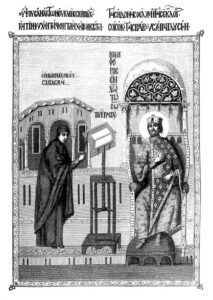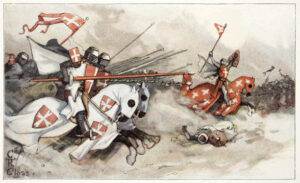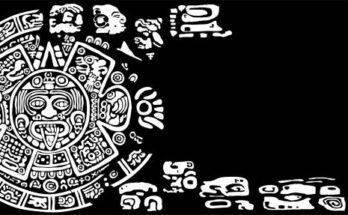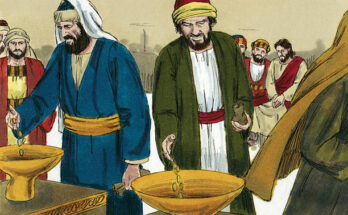Religion and politics have been intertwined throughout human history, shaping societies, economies, and governance systems. While many argue that the separation of church and state is essential for a functioning democracy, it is impossible to overlook the profound impact of religion on the political economy of nations around the world. In this article, we will explore the intricate relationship between religion and political economy and delve into how faith-based values and beliefs can influence economic policies, trade, and development. To better understand the importance of religion in the realm of political economy, we will examine historical and contemporary examples from different regions.
The Historical Connection
To appreciate the role of religion in political economy, we must first examine the historical context. Throughout centuries, religions have often been at the forefront of economic activities and policy-making. In many cases, religious institutions have played a central role in guiding economic behaviour and trade.
-
Medieval Catholicism and the Rise of Capitalism
 (Photo from iStock)
(Photo from iStock)
During the Middle Ages, the Catholic Church had an immense influence over Western Europe’s political and economic landscape. The church held vast amounts of land and wealth, and it played a pivotal role in shaping economic policies. One of the most significant impacts was the development of the system of lending money, which was initially forbidden by the church but gradually became more acceptable, leading to the rise of modern capitalism.
Religious institutions also promoted the idea of the “Protestant work ethic,” which had a profound effect on the development of capitalism. In the 16th century, John Calvin’s teachings emphasized the importance of hard work and frugality as signs of God’s favor. This encouraged individuals to work diligently, save money, and invest in economic activities, ultimately fostering economic growth and development.
-
Islamic Finance
Islam, with over a billion adherents worldwide, has also made significant contributions to the world of finance. The principles of Islamic finance are rooted in religious beliefs, primarily the prohibition of interest (usury) and adherence to the principles of equity, justice, and risk-sharing.
The concept of Sharia-compliant finance, which adheres to Islamic law, has created a distinct financial sector with its own unique instruments, such as Sukuk (Islamic bonds) and Islamic banks.
Religious Values and Economic Policies
The values and beliefs instilled by religious faith can significantly influence a nation’s economic policies. These policies can vary widely depending on the dominant religion and its interpretation. Let’s explore how different religious values can impact economic decisions.
-
Social Welfare and Charity
 (Photo from iStock)
(Photo from iStock)
Many religious traditions emphasize the importance of charity and caring for the less fortunate. For instance, Christianity promotes the idea of helping the poor and marginalized, and this has led to the development of social welfare programs in many Western countries. Governments in these nations have implemented policies to provide social safety nets, such as healthcare, unemployment benefits, and food assistance, to uphold these religious values.
-
Work Ethic and Entrepreneurship
Religious beliefs can also impact the work ethic and entrepreneurial spirit of a society. As previously mentioned, the Protestant work ethic encouraged hard work, thrift, and industry. This emphasis on personal responsibility and achievement has influenced economic policies that support individual entrepreneurship and self-reliance in many Western countries.
-
Moral and Ethical Guidelines
Religious values often establish moral and ethical guidelines that can influence economic practices. For instance, Islamic finance adheres to principles that prohibit unethical investments, such as those related to alcohol, gambling, and pork.
Religion and Trade
Trade has been a fundamental aspect of economic growth and development throughout history. Religion can influence trade dynamics in various ways, including trade policies, cultural exchange, and the facilitation of commerce.
-
Silk Road and the Spread of Religion
 (Photo from iStock)
(Photo from iStock)
The Silk Road, a network of ancient trade routes, facilitated the exchange of goods, culture, and ideas between Asia and Europe. This extensive trade network played a vital role in the spread of religious beliefs, such as Buddhism, Islam, and Christianity. As merchants travelled along these routes, they not only traded goods but also shared their faith, leading to the spread of religions across continents.
-
Halal and Kosher Trade
The dietary restrictions of Islam and Judaism have given rise to specific trade practices. The certification of food products as halal (permissible in Islam) and kosher (permissible in Judaism) has become a significant aspect of international trade. Businesses worldwide cater to these religious dietary requirements, creating new market opportunities and trade relationships.
-
Interfaith Trade and Diplomacy
Religion can also play a role in international trade negotiations and diplomacy. Countries with shared religious backgrounds may form stronger economic alliances, as they share common values and cultural ties.
Religious Conflict and Economic Consequences
 (Photo from iStock)
(Photo from iStock)
Religious conflicts and tensions can have significant economic consequences, often leading to instability, reduced trade, and economic decline. These conflicts can disrupt economic activities in various ways, including destruction of infrastructure, displacement of populations, and strained international relations.
-
The Crusades
These conflicts disrupted trade routes, led to the plunder of resources, and caused extensive economic hardship in the affected regions. While the primary motivation was religious, the economic consequences were profound.
-
Religious Tensions in Contemporary World
In the contemporary world, religious tensions and conflicts persist and continue to have economic repercussions. The Israeli-Palestinian conflict, for example, has resulted in economic challenges for both sides, affecting trade, investment, and overall economic development in the region. Similarly, sectarian conflicts in countries like Iraq and Syria have devastated economies, leading to the displacement of populations and the destruction of infrastructure.
Conclusion
The importance of religion in political economy is a multifaceted and nuanced topic. Throughout history, religion has played a vital role in shaping economic systems, values, and policies. From the Protestant work ethic’s influence on capitalism to the development of Islamic finance, religious beliefs have had a lasting impact on economic practices.
In a globalized world marked by diverse beliefs and values, striking a balance between religious principles and economic development is a complex task.




